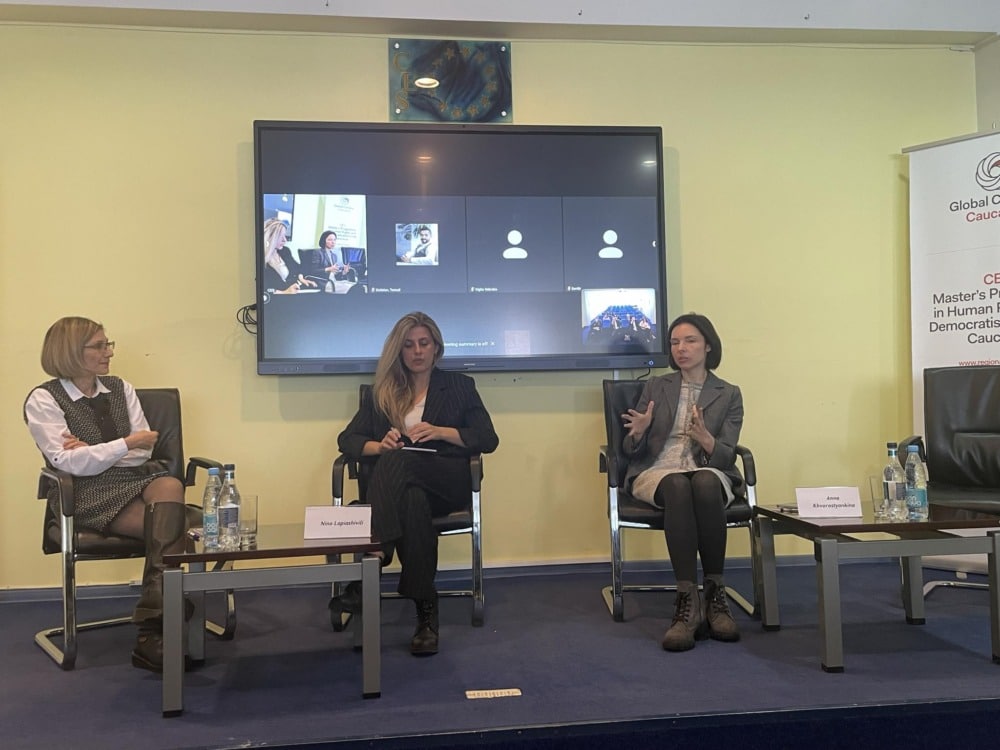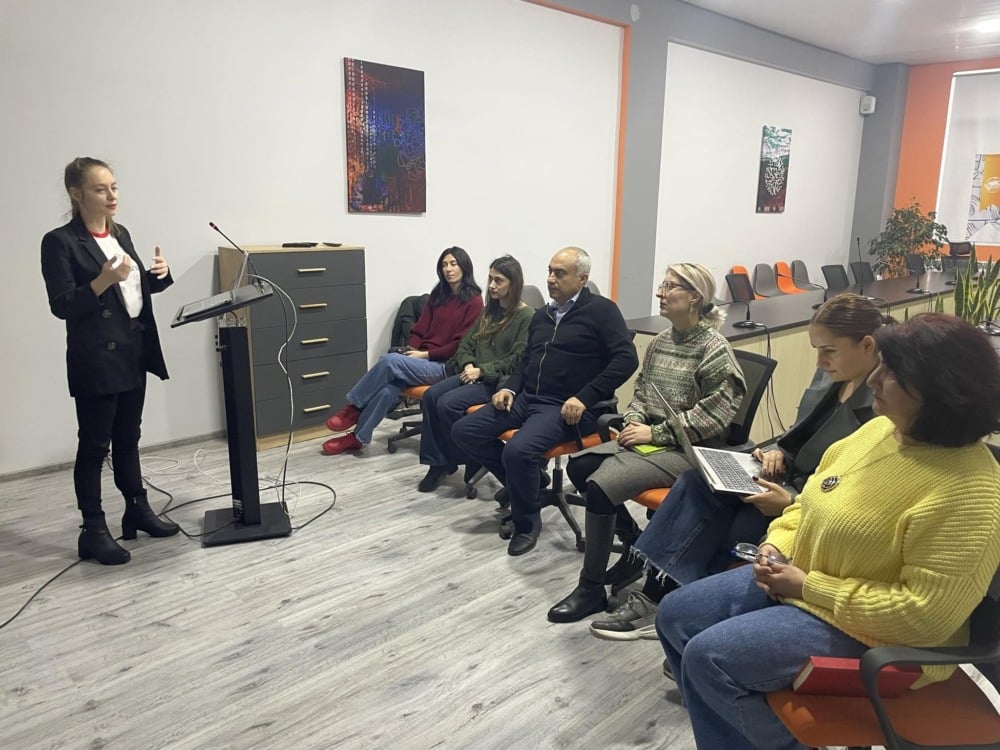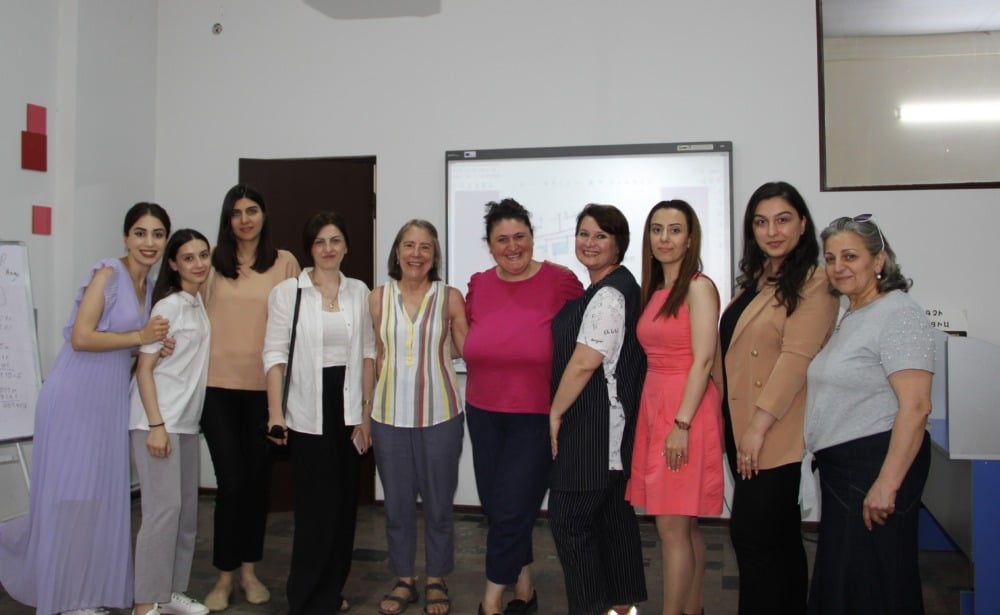International Seminar-Training under the theme “Driving University Strategies towards the Internationalization through the Use of International Benchmarks” Launched




On February 4, 2019, International Seminar-Training launched on “Driving University Strategies towards the Internationalization through the Use of International Benchmarks” at Eurasia International University, organized by National Team of Erasmus+ Higher Education Reform Experts (HEREs) in Armenia, which was implemented by Irina Ferencz, the Deputy Director at the Brussels-based Academic Cooperation Association (ACA). The aim of the seminar is to assist Armenian universities to improve their institutional strategies and localize them in the state policy based on international experience.
Lusine Fljyan, the organizer and responsible of the International Seminar, Erasmus Plus Higher Education Reform Expert, Professor of Foreign Languages and Literature at Eurasia International University stated in her opening speech that the Internationalization is, first of all, a process where every single employee of the university must have a contribution, and when developing the strategies, the university must localize the benchmarking so that it will not be simply the best, but even better than the best.


Rector of the EIU, Professor S. Ohanyan emphasized that the national strategic educational programs should be related with international educational programs and expressed hope that as a result, a package of proposals will be elaborated in order to localize, contribute and develop university strategic programs.
According to the responsible of Erasmus Plus National Office Programs Edith Soghomonyan, Erasmus Plus has been one of the best tools since 2015 to promote the internationalization, as it allowed more than 1,300 individuals to move abroad, but this rate is much higher compared with the inbound mobility, which, in its turn, is one of the problems of the process of internationalization at the national level.


Deputy Director of the ACA, Irina Ferencz stated, that if earlier saying “internationalization” we had understood the exchange of students and academic staff, today this concept has radically changed, including internationalization abroad (mobility, strategic partnership, marketing, advancement, international competitions, digitization) and “at home” at a university level (internationalization of subject programs, teaching in foreign languages, auditoriums, etc.). According to the Bologna survey, 32 out of 48 countries have a state-level internationalization strategy and the development of a national strategic plan involves targeted, coordinated activities that exist in more than 45 countries.There is diversity in existing strategic plans: some of them are certain action plans, while the others are simply approaches to internationalization. According to the countries of the region, Georgia has a strategy at the national level, whereas Armenia is quite active at a university level.


The Head of Quality Assurance Center Arevik Ohanyan spoke about the results of Erasmus+ HARMONY Program Research and the Strategy Tools of Higher Education Internationalization, which are intended to present during the upcoming workshop with the Ministry of Education and Science of RA.


The former responsible of Erasmus+ BOOST program, Head of International Relations of Yerevan State Linguistic University after V. Brusov, Christina Tsaturyan presented the results of the research and the proposals based on them, according to which a universal platform should be created where the universities will introduce their best practice and will implement self-evaluation through benchmarking.
The agenda includes discussions, presentations, group assignments, through which the European expert will assist trainees to improve the quality of internationalization strategies through new actions and analyzes, investment and use of different evaluation tools.
Let us add that the representatives of the Ministry of Education and Science of RA, Higher Education Policy Developers, Administrative Staff of Higher Education Institutions, International Relations Officers, Professors and Heads of Student Councils are participating in the Seminar.


